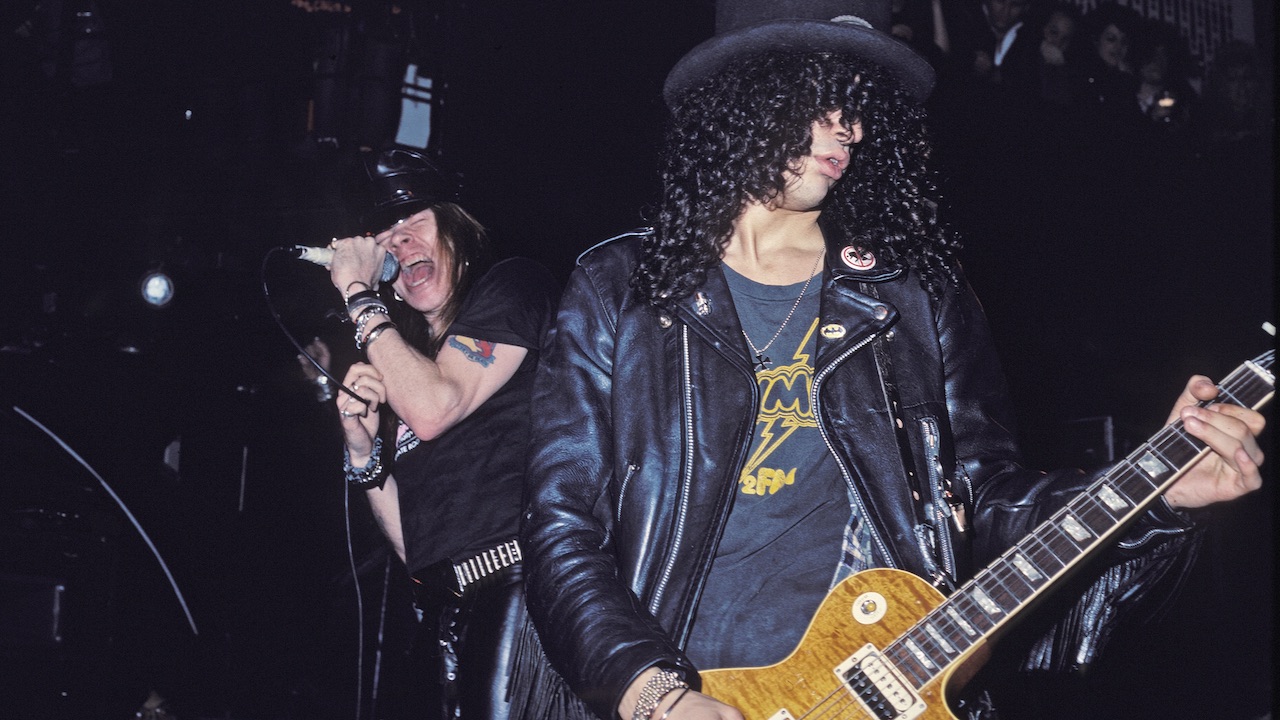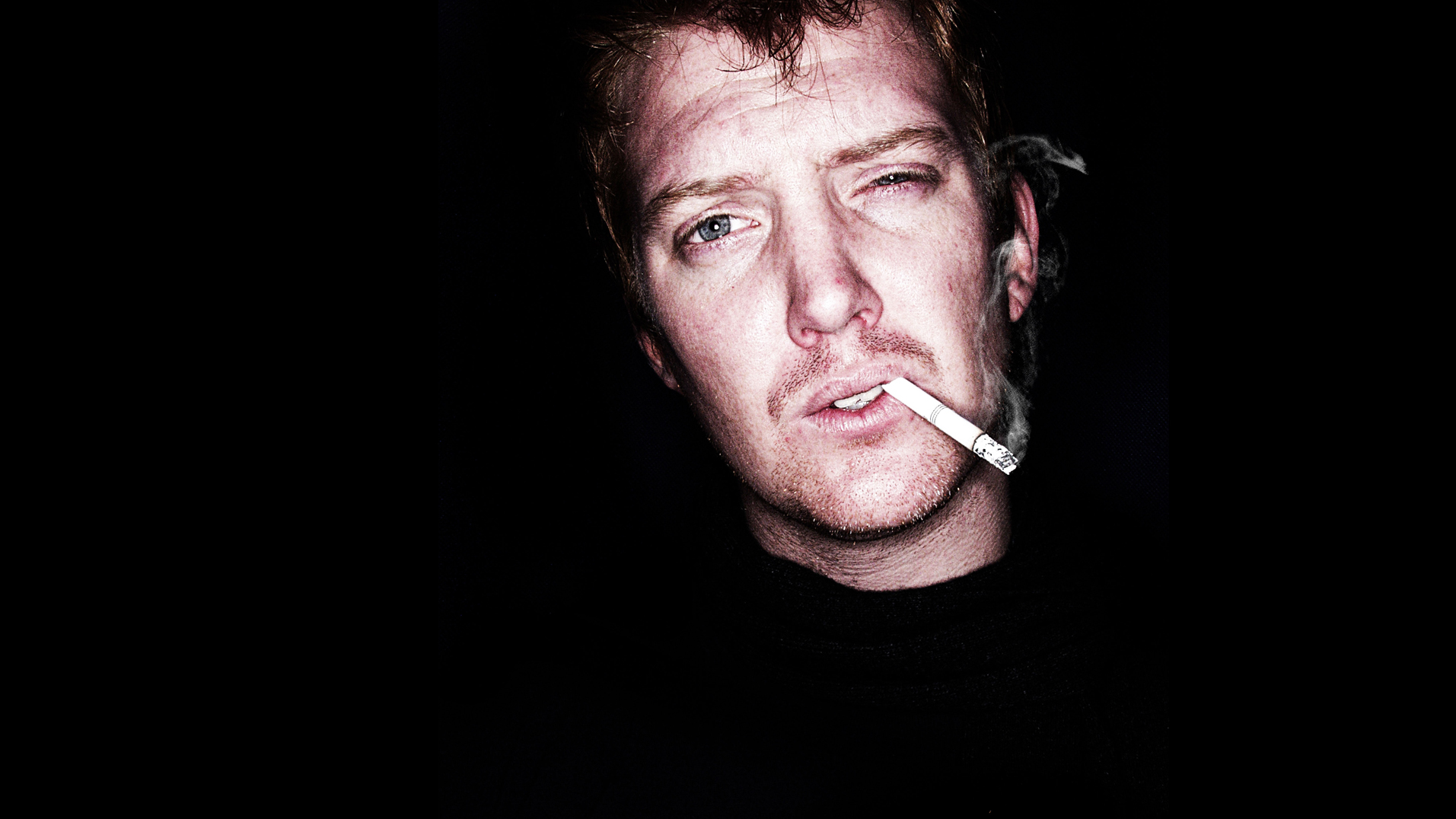"Everybody on the black side of my family was like, What is your problem?" In 1990, Slash broke his silence and shared his true feelings about Guns N' Roses' most controversial song, One In A Million
"I can’t sit here with a clear conscience and say, It’s okay that it came out."

Select the newsletters you’d like to receive. Then, add your email to sign up.
You are now subscribed
Your newsletter sign-up was successful
Want to add more newsletters?

Every Friday
Louder
Louder’s weekly newsletter is jam-packed with the team’s personal highlights from the last seven days, including features, breaking news, reviews and tons of juicy exclusives from the world of alternative music.

Every Friday
Classic Rock
The Classic Rock newsletter is an essential read for the discerning rock fan. Every week we bring you the news, reviews and the very best features and interviews from our extensive archive. Written by rock fans for rock fans.

Every Friday
Metal Hammer
For the last four decades Metal Hammer has been the world’s greatest metal magazine. Created by metalheads for metalheads, ‘Hammer takes you behind the scenes, closer to the action, and nearer to the bands that you love the most.

Every Friday
Prog
The Prog newsletter brings you the very best of Prog Magazine and our website, every Friday. We'll deliver you the very latest news from the Prog universe, informative features and archive material from Prog’s impressive vault.
In 2018, Universal Music issued a 'Locked N' Loaded - Limited Super Deluxe Edition' of Guns N' Roses' debut album, Appetite For Destruction, with an eye-watering $1000 price tag. Housed in a wooden box covered with vegan leather, the box set featured an exhaustive list of Gn'R ephemera - rings, guitar picks, a. bandana, replica ticket stubs, collectible coins - plus seven vinyl twelve inch records featuring the original albums, B-sides, early EPs, previously unreleased demo recordings and much more. One thing that was conspicuously missing from what was billed as a 'Holy Grail' for fans of the Los Angeles hard rock band was the most controversial song they ever recorded, One In A Million. In a summer 2018 interview with Rolling Stone, guitarist Slash stated the decision to omit the song was taken collectively, adding, "It didn’t take long. There wasn’t a big roundtable thing over it."
One In A Million was originally released on the band's G N' R Lies EP, which coupled the quintet's 1986 EP Live ?!★꩜ Like a Suicide , and four acoustic recordings, Patience, Used To Love Her, You're Crazy and One In A Million. Patience was released as a single, reaching number 4 on the Billboard Hot 100, but it was the EP's closing track which garnered the most attention, as it featured some of the most objectionable lyrics ever released by any band on a major label. An account of Axl Rose's early experiences in Los Angeles after stepping off a Greyhound bus from Indiana, the song featured deeply offensive racist and homophobic slurs, with Rose railing against "immigrants", "faggots" and "n*****s".
At the time, Rose attempted to defend his use of the latter word by claiming that it "doesn't necessarily mean black" and also suggested that, if a rap group such as N.W.A. (featuring Ice Cube and Dr. Dre) were free to use the word, then he should be extended the same right.
Among the mock newspaper clippings on the album artwork, Rose, undoubtedly aware of the attention his lyrics would receive, included the semi-apology "my apologies to those who may take offense". But frankly his use of such hate speech was indefensible, caused upset within the band, and left many fans wondering about the character of the man who fronted their favourite band. Which, in turn, just annoyed the singer more.
"Axl resented being accused of being homophobic," his A&R man Tom Zutaut insisted. "He was also really pissed off about being called a racist."
In 1990, in an interview with Musician magazine, Guns N' Roses guitarist Slash, who is biracial, addressed the controversy for the first time, and admitted to feeling uncomfortable with the song.
"Everybody on the black side of my family was like, 'What is your problem?'" he recalled. “My old girlfriend said, 'You could have stopped it.' What am I supposed to say? Axl and 1 don’t stop each other from doing things. Hopefully, if something is really bad, you stop it yourself.
“It was something he really wanted to put out to explain his story, which is what the song is about," he continued. "Axl is a naive white boy from Indiana who came to Hollywood, was brought up in a totally Caucasian society, and it was his way of saying how scared he was and this and that. Maybe somewhere in there he does harbor some sort of [bigoted] feelings because of the way he was brought up. At the same time, it wasn’t malicious."
“I can’t sit here with a clear conscience and say, It’s okay that it came out." Slash continued. "I don’t condone it But it happened, and now Axl is being condemned for it, and he takes it really personally. All I can say, really, is that it’s a lesson learned."
In 2018, when the Locked N' Loaded collection was unveiled, Slash stated that One In A Million "just didn’t have any place in that box set." But the majority of the band's fans, and perhaps the majority of the band too, will still question why the song featured on a Guns N' Roses record in the first place.
Sign up below to get the latest from Classic Rock, plus exclusive special offers, direct to your inbox!

A music writer since 1993, formerly Editor of Kerrang! and Planet Rock magazine (RIP), Paul Brannigan is a Contributing Editor to Louder. Having previously written books on Lemmy, Dave Grohl (the Sunday Times best-seller This Is A Call) and Metallica (Birth School Metallica Death, co-authored with Ian Winwood), his Eddie Van Halen biography (Eruption in the UK, Unchained in the US) emerged in 2021. He has written for Rolling Stone, Mojo and Q, hung out with Fugazi at Dischord House, flown on Ozzy Osbourne's private jet, played Angus Young's Gibson SG, and interviewed everyone from Aerosmith and Beastie Boys to Young Gods and ZZ Top. Born in the North of Ireland, Brannigan lives in North London and supports The Arsenal.
